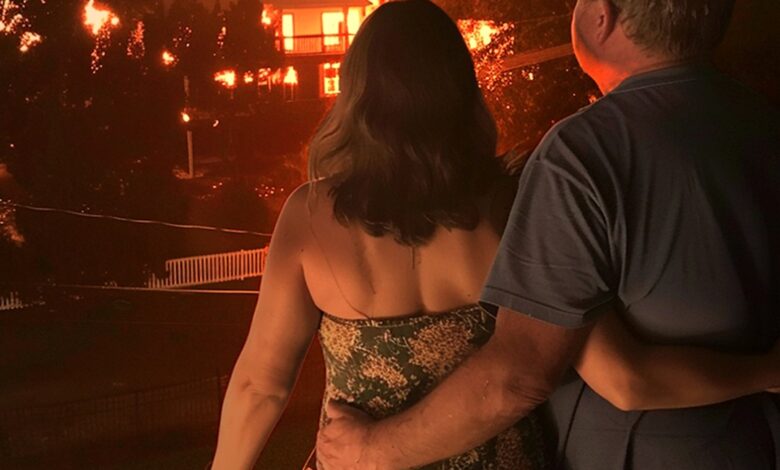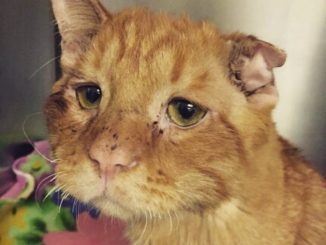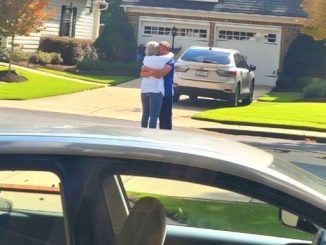
When a fire forced our neighbors to seek refuge in our home, I had no idea that a secret hidden in our basement would unravel my trust in my husband Jim and challenge the foundation of our seemingly perfect life.
Life with Jim was always calm. We had built a routine that was uniquely ours, and our little house on Maple Street felt like a haven. Jim, with his easygoing nature, balanced my more cautious, practical side. We shared everything—our morning coffee, late-night chats, and even our dreams and fears. It wasn’t a flawless marriage, but it was ours, and it worked.
One late night, the acrid smell of smoke woke us both. “Do you smell that?” I asked, sitting up in bed.
Jim sniffed the air. “Yeah, something’s burning.”
We rushed to the window and saw flames rising from our neighbors’ house. “It’s James and Eloise’s house!” I gasped.
We hurried outside and found them standing on the lawn in their pajamas, shaken and helpless. I grabbed a blanket and wrapped it around Eloise, who was sobbing uncontrollably. “It was the wiring,” she choked out. “Everything’s gone.”
I hugged her tightly. “What matters is that you’re safe. You can stay with us until you get back on your feet.”
Jim and I took them to our basement, which we had recently converted into a guest space. It wasn’t much, but it was warm and safe. For the first few days, things were calm. James and Eloise seemed to settle in, grateful for the temporary shelter. But then, one morning, James approached me quietly in the kitchen.
“Violet, don’t mention this to Jim, but something strange is going on,” he whispered, glancing around. “He told us not to open the door under the stairs because there was a mess, but we’ve been hearing noises coming from behind it. Could you check?”
My stomach tightened with dread. I rushed downstairs, fumbling for the key. As I unlocked the door and swung it open, a strong odor hit me. My heart dropped. Inside were five rabbits huddled together.
“Jim!” I screamed, panic surging through me.
He rushed to my side. “What’s wrong, Violet?”
I pointed toward the rabbits, my breath shaky. “You promised me—no rabbits in the house. You know I’m allergic!”
Jim’s expression turned sheepish. “I can explain,” he muttered, descending the stairs.
“Explain?” My voice wavered with frustration. “You promised to give them away two months ago! Why are they still here?”
Jim sighed, avoiding my eyes. “I couldn’t do it, Violet. I didn’t want to part with them, so I kept them down here. I’ve been taking care of them daily. I thought it wouldn’t be an issue since you didn’t know.”
I stared at him, torn between anger and betrayal. “You hid them, knowing my allergies—and my fear. You lied.”
“I didn’t mean to hurt you. I just couldn’t let them go,” Jim said softly, looking genuinely remorseful.
James and Eloise appeared at the top of the stairs, looking uncomfortable. “We’re so sorry,” James said. “We didn’t know. We just heard noises.”
Eloise stepped in, trying to calm things down. “Maybe we can help find a solution?”
I glanced at Jim, feeling the weight of everything we’d built together wobble beneath me. The rabbits were just a symptom of something deeper, something I wasn’t sure how to fix. But for now, the immediate issue was all I could focus on.
Just then, our other neighbors, Jules and Ethan, knocked on the door, concerned after hearing the commotion. Jim explained the situation, his voice tense. To our surprise, Jules’s face lit up.
“Rabbits? I love rabbits! We’ve got a big yard. Why don’t we take them? You can visit them anytime,” she offered.
Jim’s shoulders sagged in relief. “You’d really do that?”
“Of course,” Ethan chimed in. “We’ll pick them up later today.”
As they left, I turned to Jim, still raw with emotion. “We need to talk about this, Jim.”
“I know,” he said, his voice low. “I should have told you. I just couldn’t bear to give them up. They mean a lot to me.”
“I get that,” I replied quietly. “But keeping this from me wasn’t fair. You put my health at risk.”
He nodded, reaching for my hand. “I’m sorry, Violet. I’ll do better.”
That afternoon, Jules and Ethan returned with a large pet carrier. They gently gathered the rabbits, and I watched as my anxiety slowly lifted with their departure. Jules smiled at me. “We’ll take good care of them. And Jim, feel free to visit whenever you want.”
“Thanks again,” Jim said, his voice filled with gratitude.
That night, our house felt lighter, but there was still an underlying tension between us. Sitting on the couch, I looked at Jim. “This can’t happen again, Jim. We need to be honest with each other.”
He nodded. “You’re right. I never wanted to upset you, Violet.”
A week later, Eloise and James got word that their insurance company was expediting the reconstruction of their home, and soon they would be able to return. As they packed their things, James gave me a heartfelt hug. “We can’t thank you enough for everything.”
“You’ve been wonderful guests,” I replied with a smile. “We’re glad we could help.”
After they left, our house felt quieter, but it also felt more peaceful. The whole ordeal with the rabbits had been a wake-up call for Jim and me. We needed to communicate better, to be more open with each other.
True to his word, Jim visited Jules and Ethan’s house often to see the rabbits. He would come back with stories about their antics, his eyes sparkling with joy. It made me happy to see him still connected to them, without jeopardizing my health.
One evening, Jim came home with an idea. “Jules suggested we get a pet that wouldn’t affect your allergies. How about a fish tank? Something we can both enjoy.”
I smiled, warmed by the thought. “That sounds lovely.”
A few days later, we picked out a beautiful fish tank together, setting it up in our living room. Watching the fish swim gracefully in their new home brought a sense of calm we hadn’t felt in a while.
“This is nice,” Jim said, wrapping his arm around me as we admired our new pets. “Something we both can appreciate.”
“It really is,” I agreed, leaning into him.
In the end, we learned that secrets, no matter how small, can erode trust. But through communication and compromise, we found a way to move forward, building a stronger foundation for our life together.
You should know what blue line painted on the street means

Every motorist understands the paramount importance of adhering to road markings, as neglecting them can pose a grave risk, potentially leading to tragic consequences.
In specific regions of the United States, residents may soon notice the emergence of a novel road marking: a slender blue line positioned between the customary yellow center lines. This unique blue line is making its debut on Maryland’s roadways as a gesture of tribute to the valiant police officers devoted to safeguarding their communities.

Beyond its symbolic significance, the blue line also serves a practical purpose, acting as a navigational guide to the local police station. This symbolic gesture seeks to acknowledge and honor the sacrifices made by police officers who courageously put their lives on the line each day in the line of duty.
Recently, Ocean City, Maryland, embraced the incorporation of these blue lines onto its thoroughfares, eliciting satisfaction from Mayor Rick Sheehan. Mayor Sheehan keenly recognizes the indispensable role played by police officers in upholding peace in the beach community, where they skillfully balance the needs of older retirees and the exuberance of partying teenagers.
Strategically positioned between the established yellow road divider lines on Ocean City’s 65th street, the blue line provides a clear path leading directly to the Ocean City Police Department headquarters. This initiative is envisioned to set a positive precedent, inspiring other communities across the nation to contemplate integrating similar blue lines as a visible demonstration of solidarity and support for their local law enforcement agencies.



Leave a Reply